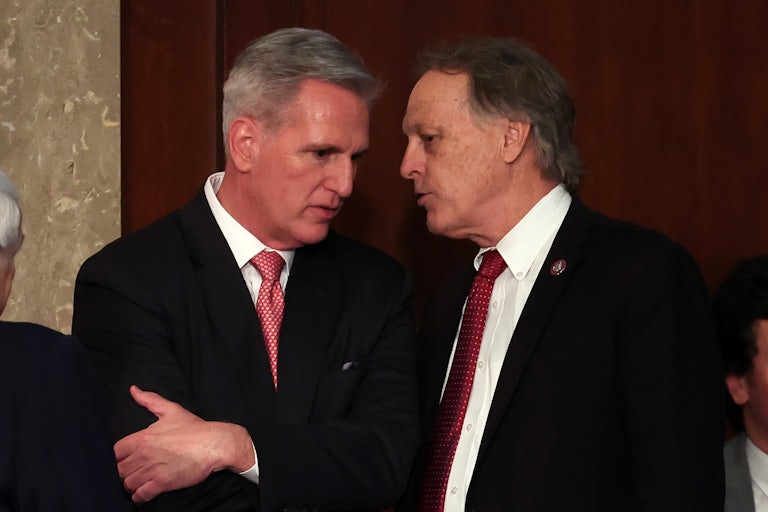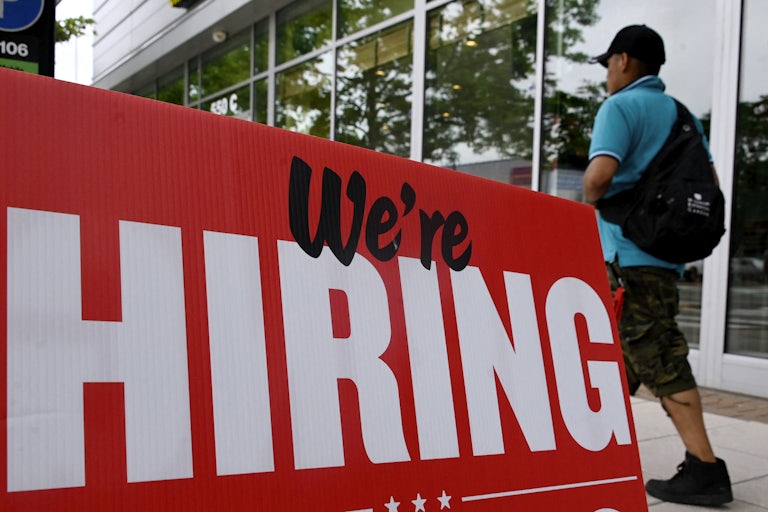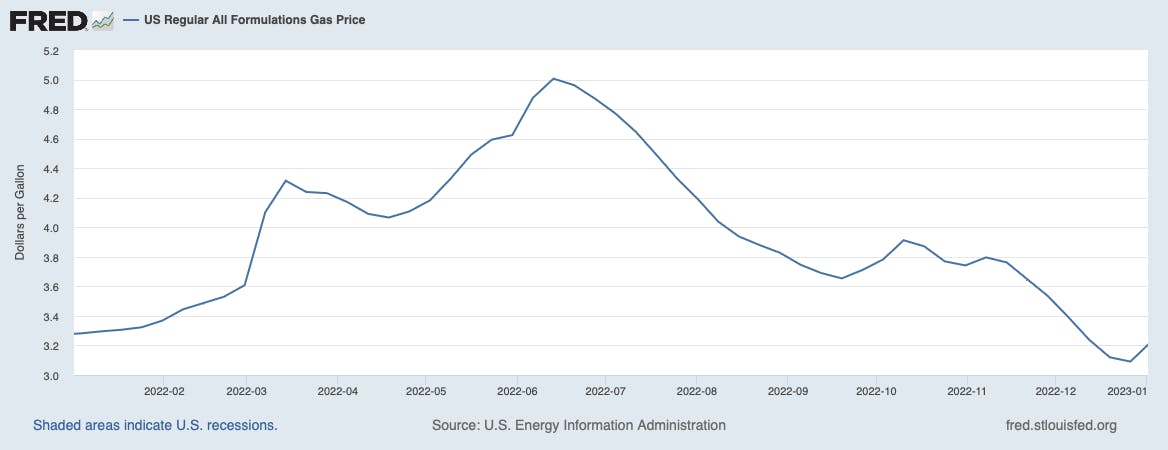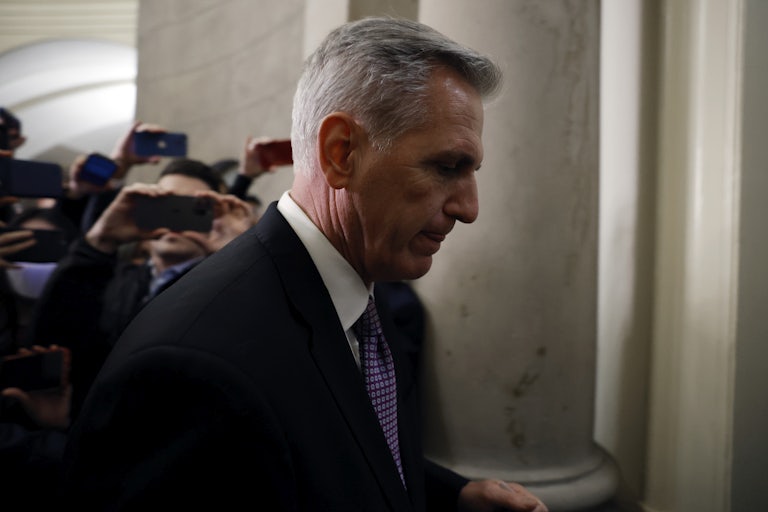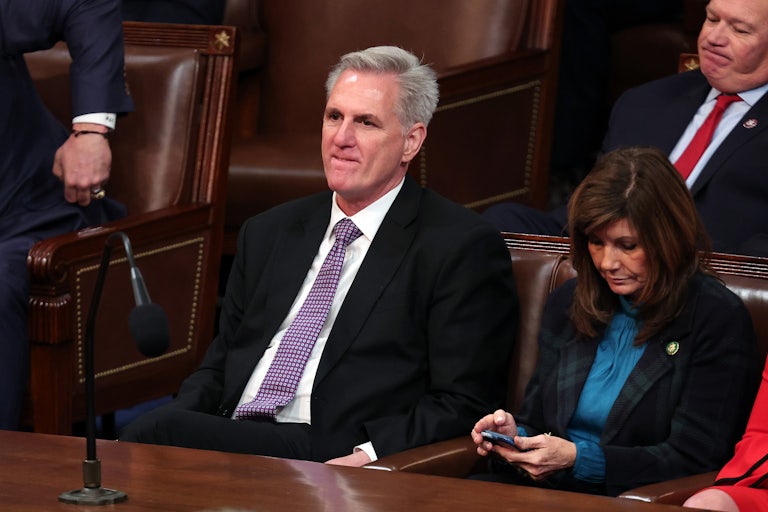Top Republicans Remain Silent on the Attack on Brazil’s Democracy
Thousands of supporters of Jair Bolsonaro, Brazil’s former far-right president, stormed the Congress in an attack that has been compared to January 6. Republicans don’t have much to say about it.
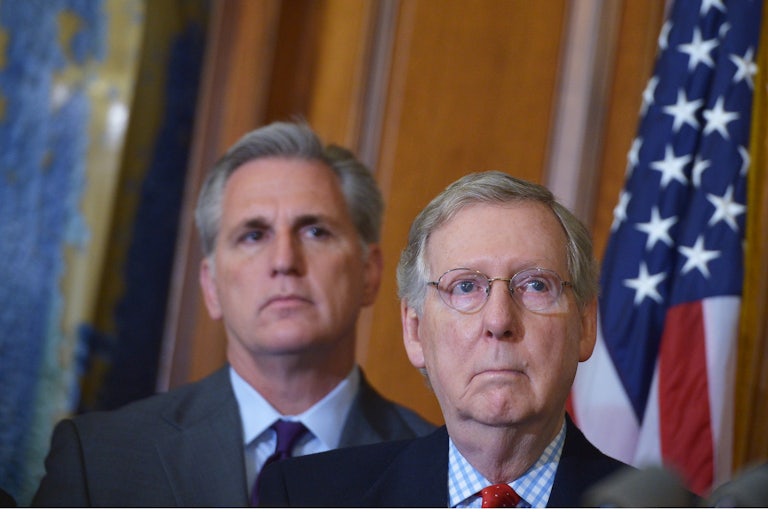
Thousands of supporters of Jair Bolsanaro, Brazil’s former far-right president, descended upon and invaded several government buildings on Sunday, in an attack on democracy that has been compared to January 6. Officials worldwide have condemned the attack and expressed support for President Luiz Inácio Lula da Silva’s government. This includes an array of Democratic officials, from Abigail Spanberger to Jamaal Bowman, starting all the way at the top:
I condemn the assault on democracy and on the peaceful transfer of power in Brazil. Brazil’s democratic institutions have our full support and the will of the Brazilian people must not be undermined. I look forward to continuing to work with @LulaOficial.
— President Biden (@POTUS) January 8, 2023
It’s hard to link to all the other statements from Democrats, given how many have spoken out on the frenzied attack. And many are actively expressing their support for Lula as the rightful president, rather than just sharing amorphous defenses of democracy.
Meanwhile, there have been few Republicans speaking out in defense of democracy, or even issuing hodgepodge statements on law and order. Republican leadership has remained completely silent, with no statements from Mitch McConnell or Kevin McCarthy. Donald Trump, who incited our own January 6, 2021, attack, has similarly been quiet.
The few statements from Republicans have come from Representatives George Santos and Brian Fitzpatrick and Senator Rick Scott.
The violence in Brazil is not the way to achieve anything, I vehemently condemn the acts of violence and vandalism displayed in Brasilia today.
— George Santos (@Santos4Congress) January 8, 2023
I condemn the violence that took place in Brazil in an attempt to stop the peaceful transfer of power, which is the most important hallmark of any democracy. I look forward to working with @LulaOficial and his administration in my role on the House Foreign Affairs Committee.
— Rep. Brian Fitzpatrick 🇺🇸 (@RepBrianFitz) January 9, 2023
Instability and violence anywhere are bad for national security, freedom and democracy everywhere.
— Rick Scott (@SenRickScott) January 8, 2023
I urge all who value democracy in Latin America to join together and call for peace and respect for law and order in Brazil.
It’s very easy to be cynical, to view Republicans’ general silence in response to a massive coordinated attack on Brazil’s democracy as unsurprising, given how many of them tacitly if not actively supported a similar attack on their own soil just two years ago. Yet it’s worth reaffirming as often and clearly as possible how radically extreme this party is that you can count with one hand how many of its members say they care about the will of the people.

